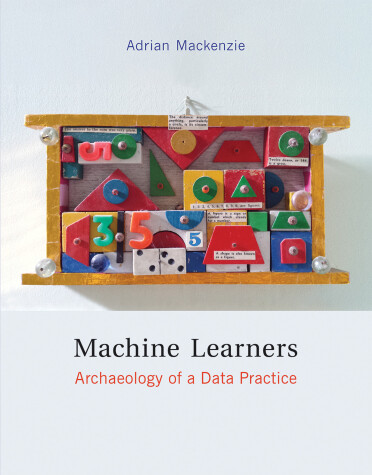The MIT Press
2 total works
In Wirelessness, Adrian Mackenzie draws on philosophical techniques from a century ago to make sense of this most contemporary postnetwork condition. The radical empiricism associated with the pragmatist philosopher William James, Mackenzie argues, offers fresh ways for matching the disordered flow of wireless networks, meshes, patches, and connections with felt sensations. For Mackenzie, entanglements with things, gadgets, infrastructures, and services -- tendencies, fleeting nuances, and peripheral shades of often barely registered feeling that cannot be easily codified, symbolized, or quantified -- mark the experience of wirelessness, and this links directly to James's expanded conception of experience.
"Wirelessness" designates a tendency to make network connections in different times and places using these devices and services. Equally, it embodies a sensibility attuned to the proliferation of devices and services that carry information through radio signals. Above all, it means heightened awareness of ongoing change and movement associated with networks, infrastructures, location, and information.The experience of wirelessness spans several strands of media-technological change, and Mackenzie moves from wireless cities through signals, devices, networks, maps, and products, to the global belief in the expansion of wireless worlds.
Machine learning—programming computers to learn from data—has spread across scientific disciplines, media, entertainment, and government. Medical research, autonomous vehicles, credit transaction processing, computer gaming, recommendation systems, finance, surveillance, and robotics use machine learning. Machine learning devices (sometimes understood as scientific models, sometimes as operational algorithms) anchor the field of data science. They have also become mundane mechanisms deeply embedded in a variety of systems and gadgets. In contexts from the everyday to the esoteric, machine learning is said to transform the nature of knowledge. In this book, Adrian Mackenzie investigates whether machine learning also transforms the practice of critical thinking.
Mackenzie focuses on machine learners—either humans and machines or human-machine relations—situated among settings, data, and devices. The settings range from fMRI to Facebook; the data anything from cat images to DNA sequences; the devices include neural networks, support vector machines, and decision trees. He examines specific learning algorithms—writing code and writing about code—and develops an archaeology of operations that, following Foucault, views machine learning as a form of knowledge production and a strategy of power. Exploring layers of abstraction, data infrastructures, coding practices, diagrams, mathematical formalisms, and the social organization of machine learning, Mackenzie traces the mostly invisible architecture of one of the central zones of contemporary technological cultures.
Mackenzie's account of machine learning locates places in which a sense of agency can take root. His archaeology of the operational formation of machine learning does not unearth the footprint of a strategic monolith but reveals the local tributaries of force that feed into the generalization and plurality of the field.

